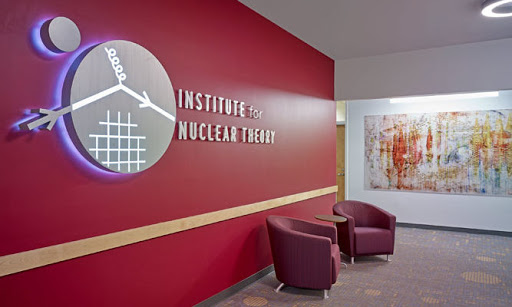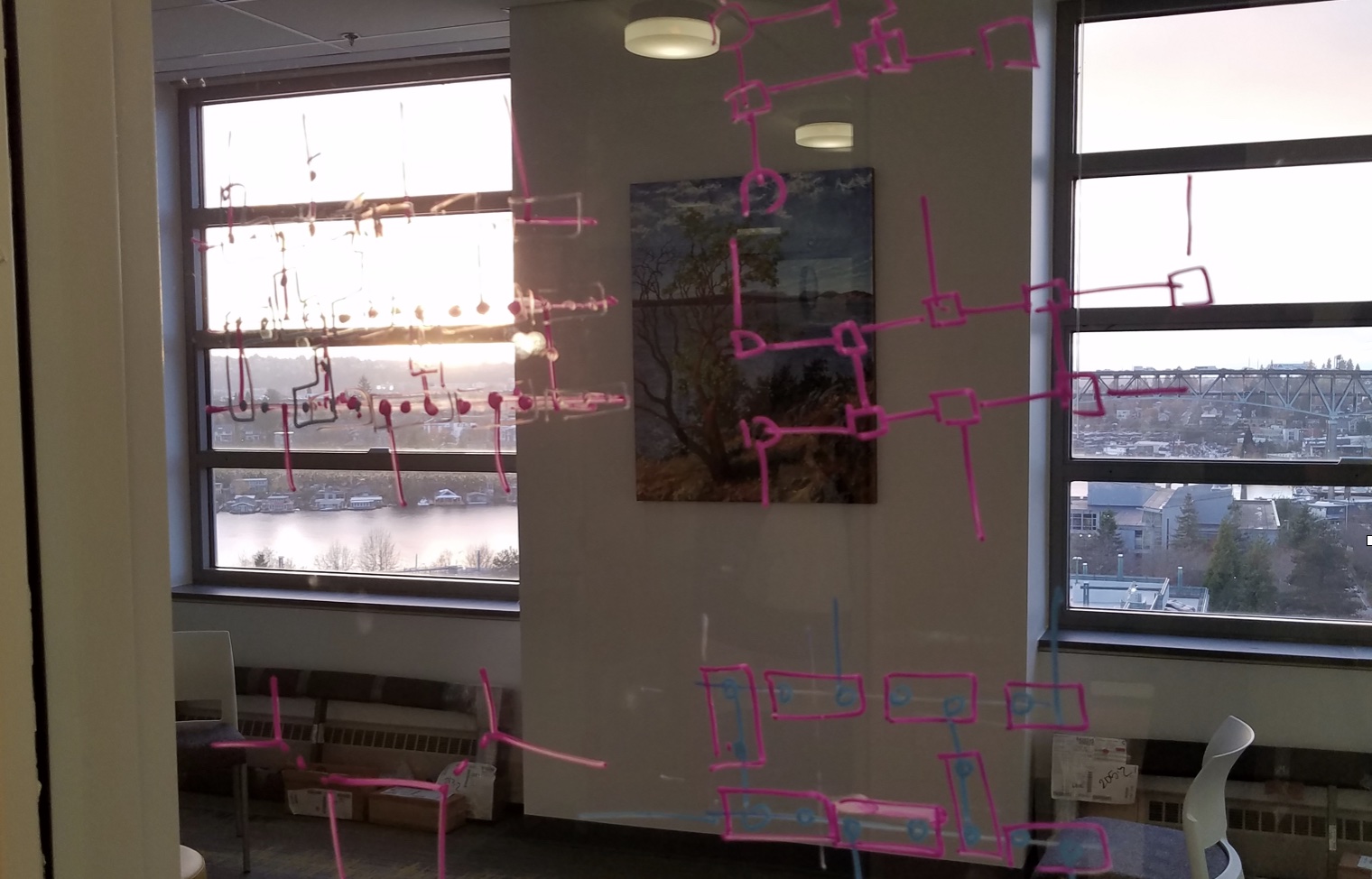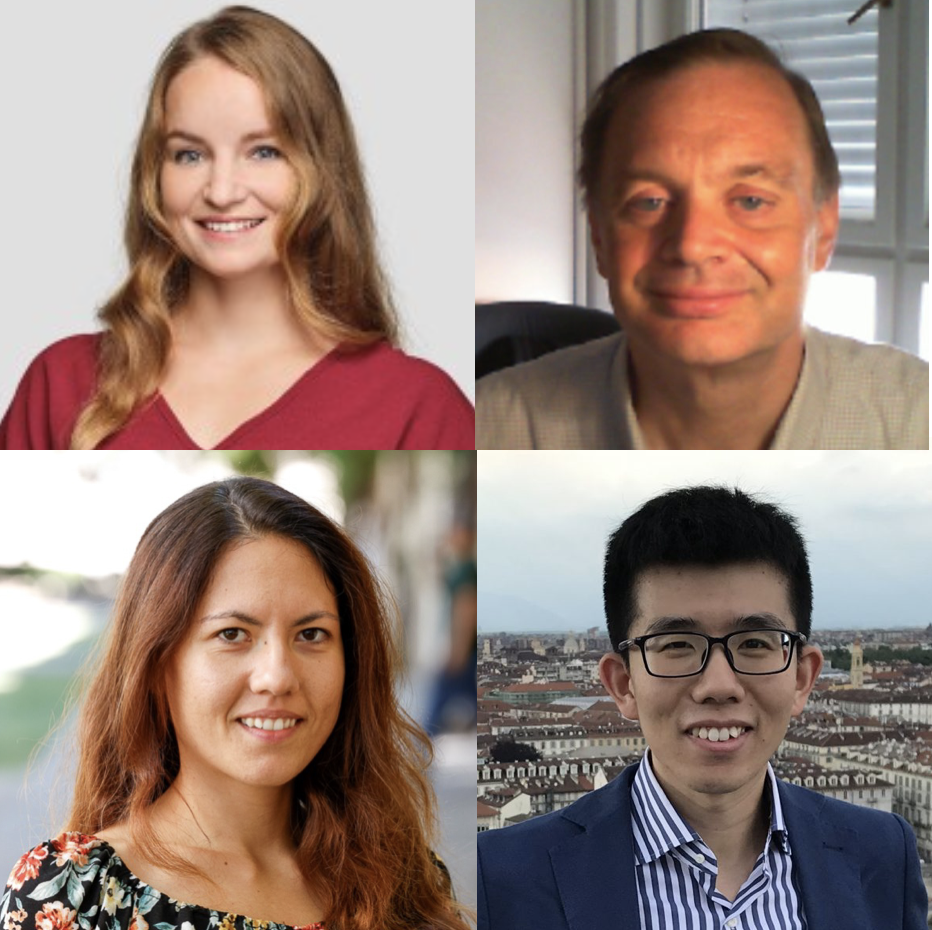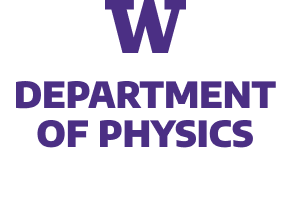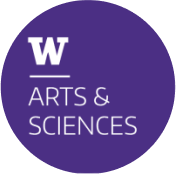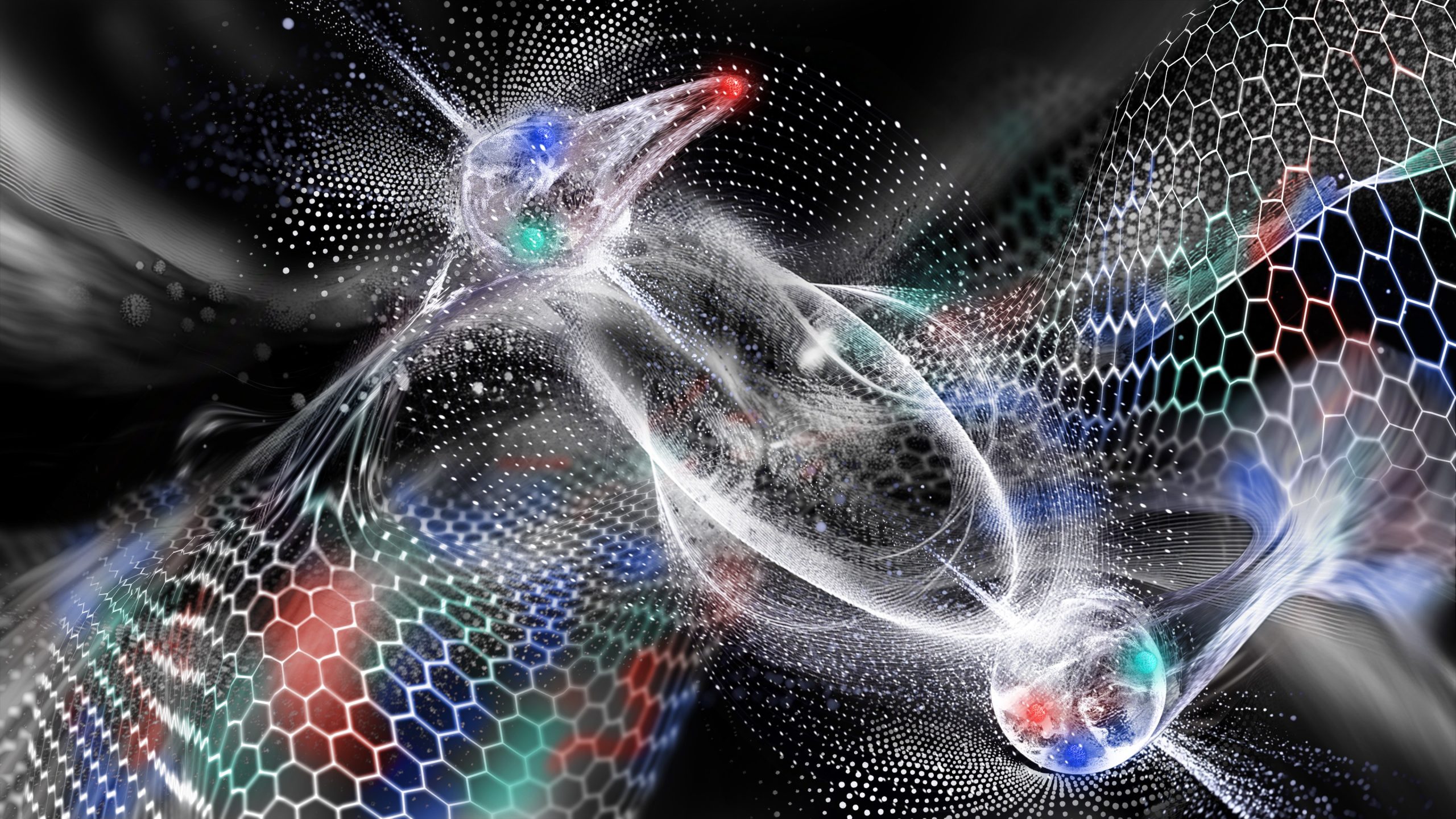
Co-design for Fundamental Physics in the Fault-Tolerant Era
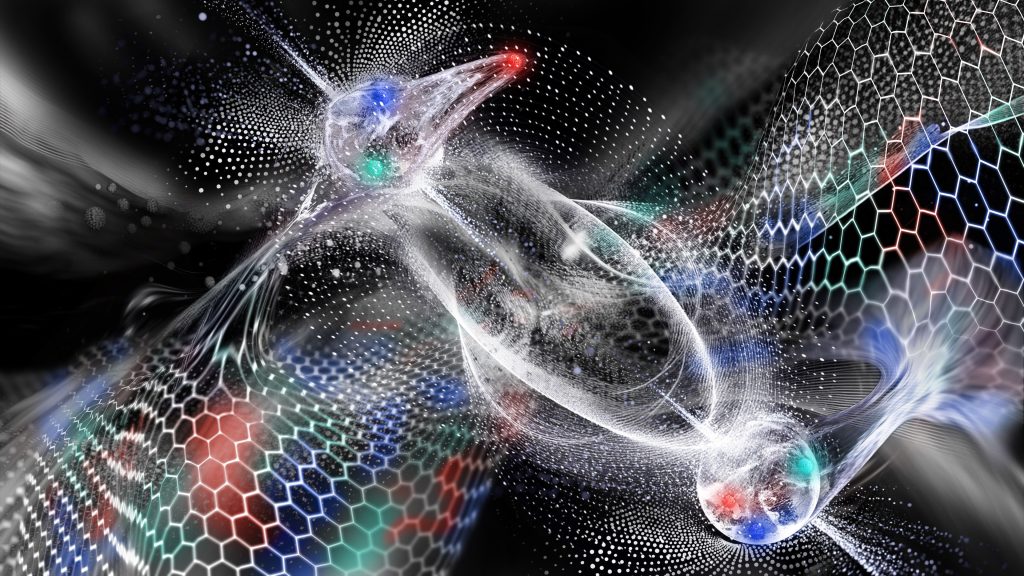
Organizers: Elisa Baumer (IBM, Zurich, Switzerland), Francesco Pederiva (University of Trento, Italy), Federica Surace (Caltech, Pasadena, USA) and Xiaojun Yao (IQuS, University of Washington, Seattle, USA).
This workshop focuses on co-designing quantum simulations for fundamental physics in the fault-tolerant era. Recent experiments demonstrate utilities of an array of quantum error correction codes and fault-tolerant qubits, which will play a significant role in large-scale quantum simulations. We intend to brainstorm and design a strategic path towards quantum simulations of physical systems. We will bring together researchers from different communities including high energy, nuclear, condensed matter, quantum information and quantum computing, to map out strategic plans. The workshop is designed to have a light schedule in terms of talks and facilitate extensive discussions and collaborations among small and large groups of researchers.
Workshop Participants: Christian Bauer (Lawrence Berkeley National Laboratory), Elisa Baumer (IBM Research Zurich), Douglas Beck (University of Illinois at Urbana-Champaign), Ramya Bhaskar (IQuS, University of Washington), Joseph Carlson (Los Alamos National Laboratory), Jiunn-Wei Chen (National Taiwan University), Eli Chertkov (Quantinuum), Joonhee Choi (Stanford University), Anthony Ciavarella (Lawrence Berkeley National Laboratory), Simon Evered (Harvard University), Henry Froland (IQuS, University of Washington), Shouzhen (Bailey) Gu (Yale University), Marc Illa (IQuS, University of Washington), Saurabh Kadam (IQuS, University of Washington), Natalie Klco (Duke University), Karol Kowalski (Pacific Northwest National Laboratory), Ohik Kwon (University of Washington), Hank Lamm (Fermilab), Randy Lewis (York University), Zhiyao Li (IQuS, University of Washington), Yannick Meurice (University of Iowa), Julius Mildenberger (Lorentz Institute and AQA, Leiden University), Sara Mouradian (University of Washington), Enrique Rico Ortega (CERN & Ikerbasque & UPV/EHU), Robert Ott (Innsbruck University), Vincent R. Pascuzzi (IBM Research), Francesco Pederiva (University of Trento and INFN-TIFPA), Sarah Powell (IQuS, University of Washington), Patrick Rall (IBM Quantum), Alessandro Roggero (University of Trento), Martin Savage (IQuS, University of Washington), Federica Maria Surace (California Institute of Technology), Nathan Wiebe (Toronto and PNNL), Kyle Wendt (Lawrence Livermore National Laboratory), Xiaojun Yao (IQuS, University of Washington).
Talks:
Martin Savage – About IQuS
Elisa Baumer and Xiaojun Yao – Workshop Vison
Joe Carlson – Some Early Applications of Quantum Computing in Nuclear and High Energy Physics
Bailey Gu – Quantum Error Correction with Erasure Qubits
Enrique Rico Ortega – Exploring the quantum frontier: HEP with quantum computing
Elisa Baumer – Prospects of Dynamic Circuits
Karol Kowalski – Downfolding Techniques for Quantum Information Sciences
Alessandro Roggero – Quantum Simulation of Nuclear Physics: Towards the Fault Tolerant Era
Christian Bauer – SU(N) gauge theory at large N
Patrick Rall – The Future of Fault TolerantQuantum Computation at IBM
Julius Mildenberger – Verification of Abelian and Non-Abelian Gauge Symmetries in Noisy Quantum Simulations
Nathan Wiebe – Quantum Error Correcting Codes Lie Hiding in Lattice Gauge Theories
Anthony Ciavarella – Hilbert Space Fragmentation in Gauge Theories
Randy Lewis – 3D Physics from Triamond Lattices
Francesco Pederiva and Federica Surace – Workshop Vision – Week-2
Francesco Pederiva – Simulation of Nuclear Scattering via Analog Simulators and Optimal Control Techniques
Robert Ott – Error-Corrected Fermionic Quantum Processors with Neutral Atoms
Joonhee Choi – Creating and Benchmarking Maximally Entangled States in a Rydberg Quantum Simulator
Yannick Meurice. – Critical Behavior of Rydberg Simulators from Aquila Bitstrings: a Fault-Tolerant Approach
Patrick Rall – Error-Correction : Status and Challenges , Ancillas
Federica Surace – Quantum Simulation of String-Breaking Dynamics
Natalie Klco – The Quantum Universe
Hank Lamm – I Can Fix HEP: Leveraging Qudit Error Correction for Lattice Gauge theories
Vince Pascuzzi – HPC4QC: Can HPC Do For QC What it has Done for AI?
Simon Evered – Quantum Error Correction and Digital Quantum Simulations with Reconfigurable Atom Arrays
Eli Chertkov – Floquet Prethermalization on a Digital Quantum Computer
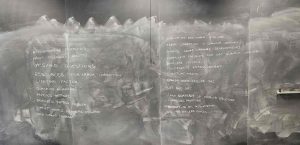
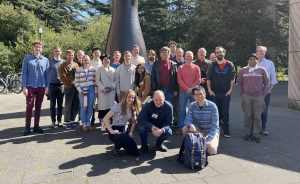
Hourly Schedule
Week-1: Monday, 31 March 2025
- 9.30am - 9.35am
- About IQuS
- Martin Savage (IQuS)
- 9.35am - 10.00am
- Workshop Vision
- Elisa Baumer (IBM, Zurich) and Xiaojun Yao (IQuS)
- 10.00am - 10.30am
- Coffee and Discussions
- 10.30am - 11.00am
- Some Early Applications of Quantum Computing in Nuclear and High Energy Physics
- Joe Carlson (LANL)
- 11.00am - 11.10am
- Discussions
- 3.00pm - 3.30pm
- Coffee and Discussions
- 3.30pm - 4.00pm
- Quantum Error Correction with Erasure Qubits
- Bailey Gu (Yale)
Tuesday, 1 April 2025
- 9.30am - 10.00am
- Enrique Rico Ortega (CERN, Ikerbasque, UPV/EHU)
- 10.00am - 10.10am
- Discussions
- 10.10am - 10.30am
- Coffee and Discussions
- 5th Floor
- 10.30am - 11.00am
- Prospects of Dynamic Circuits
- Elisa Baumer (IBM, Zurich)
- 11.00am - 11.10am
- Discussions
- 3.00pm - 3.30pm
- Coffee and Discussions
- 5th Floor
- 3.30pm - 4.00pm
- Downfolding Techniques for Quantum Information Sciences
- Karol Kowalski (PNNL)
Wednesday, 2 April 2025
- 9.30am - 10.00am
- Quantum Simulation of Nuclear Physics: Towards the Fault Tolerant Era
- Alessandro Roggero (University of Trento)
- 10.00am - 10.10am
- Discussions
- 10.10am - 10.30am
- Coffee and Discussions
- 5th Floor
- 10.30am - 11.00am
- SU(N) gauge theory at large N
- Christian Bauer (LBNL)
- 11.00am - 11.10am
- Discussions
- 2.30pm - 3.00pm
- Rump Session
- 3.00pm - 3.30pm
- Coffee and Discussions
- 5th Floor
Thursday, 3 April 2025
- 9.30am - 10.00am
- Fault Tolerant Quantum Computation at IBM
- Patrick Rall (IBM, Quantum)
- 10.00am - 10.10am
- Discussions
- 10.10am - 10.30am
- Coffee and Discussions
- 5th Floor
- 2.30pm - 3.00pm
- Discussions
- 3.00pm - 3.30pm
- Coffee and Discussions
- 5th Floor
- 3.30pm - 4.00pm
- Verification of Abelian and Non-Abelian Gauge Symmetries in Noisy Quantum Simulations
- Julius Mildenberger (Lorentz Institute and AQA, Leiden University)
Friday, 4 April 2025
- 9.30am - 10.00am
- Quantum Error Correcting Codes Lie Hiding in Lattice Gauge Theories
- Nathan Wiebe (University of Toronto)
- 10.00am - 10.10am
- Discussions
- 10.10am - 10.30am
- Coffee and Discussions
- 5th Floor
- 10.30am - 11.00am
- Hilbert Space Fragmentation in Gauge Theories
- Anthony Ciavarella (LBNL)
- 11.00am - 11.10am
- Discussions
- 1.30pm - 2.00pm
- 3D Physics from Triamond Lattices
- Randy Lewis (York University)
- 2.00pm - 2:30pm
- Coffee and Discussions
- 5th Floor
Week-2: Monday, 7 April 2025
- 9.30am - 9.35am
- About IQuS
- Martin Savage (IQuS)
- 9.35am - 10.00am
- Workshop Vision
- Francesco Pederiva (University of Trento) and Federica Surace (Caltech)
- 10.00am - 10.30am
- Coffee and Discussions
- 5th Floor
- 10.30am - 11.00am
- Simulation of Nuclear Scattering via Analog Simulators and Optimal Control Techniques
- Francesco Pederiva (University of Trento)
- 11.00am - 11.10am
- Discussions
- 3.00pm - 3.30pm
- Coffee and Discussions
- 5th Floor
- 3.30pm - 4.00pm
- Error-Corrected Fermionic Quantum Processors with Neutral Atoms
- Robert Ott (University of Innsbruck)
Tuesday, 8 April 2025
- 9.30am - 10.00am
- Creating and Benchmarking Maximally Entangled States in a Rydberg Quantum Simulator
- Joonhee Choi (Stanford University)
- 10.00am - 10.10am
- Discussions
- 10.10am - 10.30am
- Coffee and Discussions
- 5th Floor
- 10.30am - 11.00am
- Critical Behavior of Rydberg Simulators from Aquila Bitstrings: a Fault-Tolerant Approach
- Yannick Meurice (University of Iowa)
- 11.00am - 11.10am
- Discussions
- 2.30pm - 3.30pm
- Error-Correction : Status and Challenges
- Patrick Rall (IBM)
- 3.30pm - 4.00pm
- Coffee and Discussions
- 5th Floor
Wednesday, 9 April 2025
- 9.30am - 10.00am
- Quantum Simulation of String-Breaking Dynamics
- Federica Surace (Caltech)
- 10.00am - 10.10am
- Discussions
- 10.10am - 10.30am
- Coffee and Discussions
- 5th Floor
- 10.30am - 11.00am
- The Quantum Universe
- Natalie Klco (Duke University)
- 11.00am - 11.10am
- Discussions
- 3.00pm - 3.30pm
- Coffee and Discussions
- 5th Floor
- 3.30pm - 4.00pm
- Rump Session
Thursday, 10 April 2025
- 9.30am - 10.00am
- I Can Fix HEP: Leveraging Qudit Error Correction for Lattice Gauge theories
- Hank Lamm
- 10.00am - 10.10am
- Discussions
- 10.10am - 10.30am
- Coffee and Discussions
- 5th Floor
- 10.30am - 11.00am
- 11.00am - 11.10am
- 3.00pm - 3.30pm
- Coffee and Discussions
- 5th Floor
- 3.30pm - 4.00pm
- HPC4QC: Can HPC Do For QC What it has Done for AI?
- Vince Pascuzzi (IBM Research)
Friday, 11 April 2025
- 9.30am - 10.00am
- Quantum Error Correction and Digital Quantum Simulations with Reconfigurable Atom Arrays
- Simon Evered (Harvard University)
- 10.00am - 10.10am
- Discussions
- 10.10am - 10.30am
- Coffee and Discussions
- 5th Floor
- 10.30am - 11.00am
- Floquet Prethermalization on a Digital Quantum Computer
- Eli Chertkov (Quantinuum)
- 11.00am - 11.10am
- Discussions
